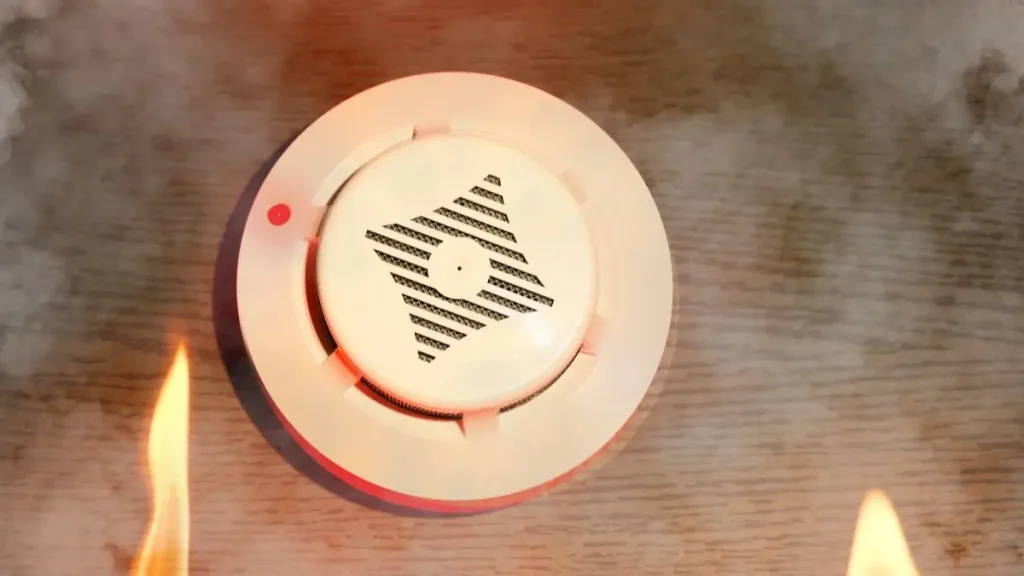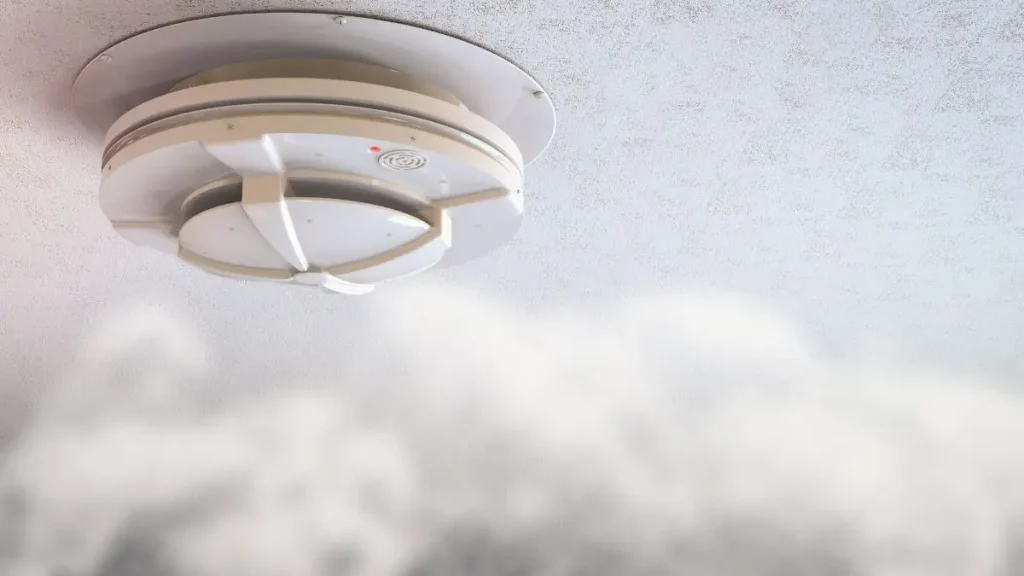Home Fire Kills 4 in Louisiana — What Every Family Needs to Check Tonight
I’ve covered house fires before. But what happened just after 1 a.m. on July 24 in Raceland, Louisiana? This one feels different. It wasn’t just flames and smoke—it was four young lives, gone in minutes.
The fire broke out inside a home on Rodriguez Drive. By the time firefighters arrived, it was too late. Four siblings—ages 6, 12, 14, and 20—were trapped inside. Only one woman, 46, made it out. She was rushed to the hospital. The others never had a chance.
A neighbor, Joey Woodward, told WWLTV that he woke up to banging at his door. When he stepped outside, the air was thick with smoke. He saw someone screaming for help—probably the woman who escaped—and called 911. Within seconds, he said, the windows started breaking.
“There was so much smoke, you couldn’t even see the house,” he said. And that’s the part that sticks with me. If you can’t see, how do you save anyone?
Fires like this don’t usually get national headlines. But maybe they should. Because behind every local news report is a family ripped apart—and questions that never get answered.
Remembering the Victims — Four Siblings Gone Too Soon
I wish I didn’t have to write this section. You read about tragedies, but when I saw the names—Dre’Trelle (6), Karlie (12), Benjamin (14), and Bennaja (20)—it felt personal. These weren’t just “four victims.” They were siblings. A family.
Their lives were cut short in a way no one should ever experience.
The Louisiana Office of State Fire Marshal confirmed the tragedy on Facebook, calling it a “devastating fatal fire.” When I read that line, I paused. Because behind those three words are four lives and one community forever changed.
One neighbor, Angelle Kramer, remembered the children as polite and full of energy. Her grandson used to play with them. “Very nice. Very polite kids,” she told WWLTV. “They will be greatly missed.”
And you know what hit hardest? She said, “Nobody should have to bury a child, much less four at one time.”
You feel that too, right?
A Survivor’s Silence — Who Was the Woman Who Escaped?
As much as I keep thinking about the children, I also can’t stop wondering about the woman who escaped. She was 46, according to reports. And she made it out—but her children didn’t.
We still don’t know her name. But you can imagine the trauma she must be carrying right now. She got out alive, but she left four of her babies behind.
The team at People confirmed the coroner had identified the victims and reported that the 46-year-old woman was treated at a local hospital.
I try to put myself in her shoes. If I were the one who made it out—what would I be feeling? And if you were her neighbor or friend, what would you say to help?
We might never know her full story, but we owe her this much: to talk about it, to care, and to learn from it.
This isn’t the first time a late-night blaze has turned deadly—just last month, a Florida home fire claimed a life under eerily similar circumstances.
The Smoke Alarm Didn’t Speak Up—Why?

Let’s talk about the thing no one really wants to talk about until it’s too late—smoke alarms.
In this case, officials said there were smoke alarms inside the house, but it’s still unclear whether they worked. Can you imagine that? Having them installed… but not knowing if they would actually protect your family?
When I heard that, my stomach dropped. Because I’ve been guilty too. Maybe you have as well—ignoring that low-battery beep, forgetting to test them monthly, assuming they’ll just work when needed.
The Fire Marshal’s Office made one thing painfully clear in their statement:
“We don’t know what might have made a difference to prevent this fire, but we know in any fire, smoke alarms can give families critical, extra time to escape.”
That extra time… could’ve changed everything.
If you do one thing today, I urge you—test your alarms. Replace batteries. And if you don’t have one in every bedroom, make it a priority this week. It’s not paranoia. It’s prevention.
Have you ever checked your smoke alarms at night? Would you have had enough time to escape? Drop a comment below—I want to hear your thoughts.
Four Fires in One Week — What’s Really Going On?
You know what made this story even harder to process? This wasn’t some rare, isolated disaster.
It was the fourth deadly fire in Louisiana that week linked to non-working or absent smoke alarms. Four fatal fires. In seven days.
That’s not a coincidence. That’s a pattern—and it’s terrifying.
What’s going wrong? Is it faulty devices, old housing, negligence, or something else? I don’t have all the answers—but I do know this: too many families in Louisiana are living in homes that won’t protect them when it matters most.
And honestly, that could be your home. Or mine.
We need more than just awareness—we need access to free or affordable safety tools, especially for low-income households. Maybe it’s time fire safety gets the same attention as crime prevention or healthcare.
Until then, let’s be the ones who do the simple thing that might save our own families: fix the alarms, plan the escape, and talk about it—even when it’s uncomfortable.
I recently came across a fire safety-focused WhatsApp channel that shares real-time updates and prevention tips from across the country. Honestly, some of the quick checklists they post are worth saving. It’s a small habit shift—but it keeps fire awareness front of mind.
How the Community Is Mourning the Bradleys?
I can still hear the voice of neighbor Joey Woodward, describing what he saw.
He heard banging at his front door. When he opened it, thick smoke filled the air. He saw a woman screaming. He tried to help. But by then, it was too late. The fire had already won.
“There was so much smoke, you couldn’t even see the house,” he said. You could feel the helplessness in his words.
And then there’s Angelle Kramer—the same neighbor who used to see the kids playing with her grandson. She didn’t just lose neighbors. She lost part of her community. Part of her heart.
I know it’s easy to scroll past news like this and move on. But I’m asking you not to. Pause. Remember these names. Talk to your family tonight about safety.
Because in a town like Raceland, this is how grief spreads—quietly, but permanently. Let’s not wait until it reaches our street.
Across the country, families are facing similar nightmares—a Wisconsin blaze recently displaced an entire household in the middle of the night, raising the same fire safety questions.
Could This Fire Have Been Prevented?
I keep asking myself—could those four siblings have been saved?
And the hard truth? Yes, maybe.
That’s what fire safety experts are saying, loud and clear.
The DPS Principal Assistant Chief Bryan J. Adams didn’t hold back when he said:
“Smoke alarms can give families critical, extra time to escape a fire. Every home should have at least one working smoke alarm protecting them at all times.”
That line hit me. Because I don’t know about you, but I’ve gone months—even years—without checking mine. And in this case, even though there were smoke alarms inside the house, officials aren’t sure if any of them were working. That unknown may have cost four lives.
What’s stopping us from taking a few minutes to prevent this kind of loss in our own homes?
If you’re a parent, a renter, a landlord—this part is for you. These alarms aren’t decoration. They’re life-saving devices. And they only work if you do your part.
What Every Family Needs to Do Right Now?

I’m not just going to scare you—I want to help you protect your family.
So here’s a 7-step checklist I use in my own home, and I hope you’ll follow it today—not tomorrow:
- Test your smoke alarms every month. Just press the button and make sure it beeps.
- Replace batteries every 6 months—use daylight saving time as a reminder.
- Replace the unit every 10 years. Even if it looks fine, it may not work properly.
- Install alarms in every bedroom, hallway, and on each level of your home.
- Create a fire escape plan with your kids. Practice it twice a year.
- Keep escape routes clear. No blocked windows or locked gates.
- Consider interconnected alarms—so if one beeps, they all do.
Also, if money’s tight, some fire departments—including Louisiana’s—offer free smoke alarms and installation programs through initiatives like Operation Save-A-Life. Check your local fire agency’s website or call them directly.
You and I can’t undo what happened in Raceland. But we can take action right now to stop it from happening again.
Just like in Oklahoma City where a woman lost her life in a tragic home fire, the cause is often unclear—but the outcome is heartbreakingly familiar.
Why This Story Shouldn’t Fade Away?
You know what worries me? That in a few days, this story will disappear. Buried under celebrity drama or political noise. Forgotten like so many others.
But it shouldn’t. Because this fire didn’t just take four lives—it exposed a silent crisis:
Families living without functioning smoke alarms.
Renters without fire safety plans.
Children dying before help arrives.
And that crisis? It’s still out there—maybe in your neighborhood. Maybe in mine.
I believe stories like this should shake us. They should stay with us. They should change how we live. Because next time, it could be someone you know. Someone you love.
So tonight, I’ll light a candle for Bennaja, Benjamin, Karlie, and Dre’Trelle. And I’ll test every smoke alarm in my house.
I hope you will too.
For more real stories, safety tips, and fire awareness updates, visit our Home Incidents section.
Disclaimer: The information in this article is based on publicly available news reports and official statements. While care has been taken to ensure accuracy, details may evolve as investigations continue. This content is intended for awareness and educational purposes only.


